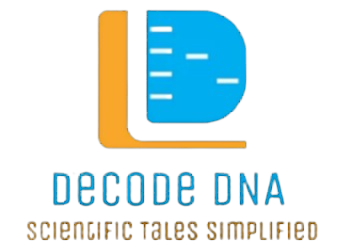Cracking a code with a good career option is no easy task today. Students are spoilt for choices, but navigating the path to seek a rewarding career option is the key. The global biotechnology market is predicted to grow by about 14% in the next five years. So, there will never be a more exciting time to pursue a career in biotechnology.
There is tremendous potential for candidates to grow in this field, which plays a crucial role in the development of technologies and treatments. Besides, biotechnology has significantly contributed to drug development, disease prevention, gene therapy, and customized medicines. Those working in this field can make a difference to the well-being and health of people.
- Biotechnology has brought a sea of changes to the fermentation and food processing industries and has given rise to the development of new technology.
- It contributes to fields like pharmacy, healthcare, agriculture, nutrition, and textiles.
- Biotechnology helps in the creation of solutions that aim to make our lives better.
- There are diverse career paths students can pursue after biotech training in India, like product development, research, sales, marketing, quality assurance, and regulatory affairs.
Admission procedure for biotechnology courses in 2024
The admission procedure for biotechnology courses at various levels in India varies from one college to another. Listed below is how the procedure works:
Fulfilling the eligibility criteria
- For UG courses
For UG courses like B.Sc. and B.Tech. in Biotechnology, the minimum eligibility is Class 12 in Science (Physics, Chemistry, Mathematics, and Biology) with 55%–60% in aggregate. The undergraduate course tenure is three years.
- For PG courses
For PG courses in biotechnology like M.Sc. and M.Tech., a bachelor’s degree or any equivalent in the related field from a recognized university is needed. Students should have scored a minimum of 50% in the aggregate. It is a two-year course program.
- Appear for entrance examinations
The next step is preparing for entrance examinations and appearing in them on the respective dates.
- Participate in the session
Once the examinations are over and the results are declared, you need to participate in counseling sessions and then complete the formalities of admission by paying the fees.
There are around 1300 colleges offering biotechnology courses in India, both at the government and private levels. Students keen to pursue UG or PG courses should check the official websites of these colleges and universities and note the exam dates.

Entrance examinations for the 3-year undergraduate examination
The entrance examinations for undergraduate biotechnology courses are:
- CUET
- ICAR
- SAAT
- AIEEA
- NEET
- JEE Main
The examinations are conducted by Jamia Millia Islamia, SOA University, Chandigarh University, UNIPUNE, and Amity University. The subjects that students can opt for the undergraduate degree are immunology, cell biology, molecular biology, microbiology, bioprocess engineering, biostatistics, and biochemistry.
Entrance examinations for a 2-year PG course in Biotechnology
To opt for PG courses in biotechnology, you must be a graduate in biotechnology, botany, microbiology, zoology, and biochemistry or in any other relevant stream from a recognized university or an institution with 55% marks. The entrance examinations held for PG courses include:
- CUET PG
- AP PGCET
- ICAR AIEEA
- IIT JAM
- GATE
- TANCET
- JEECUP
There are a few universities that enroll students in PG courses in biotechnology based on their class 12 and graduation scores. The entrance examinations comprise MCQ questions that are to be resolved within a specific time, and whether the questions will have negative marking depends on the exam pattern and the rule created by the exam authorities. Candidates can solve questions from previous years and check each year’s upgraded syllabus to prepare well for the information.
Syllabus of Biotechnology: UG Course
The syllabus for the UG course includes the following:
1st Semester
- Biophysics and Information
- Cell structure and dynamics
- Macromolecular structure and analysis
- Mathematics
- Chemistry
2nd Semester
- Principles of Transmission Genetics
- Organic mechanisms in biology
- Principles of Microbiology
- Biomathematics: 2
- Digital logic and C programming—introductory
- Immunology principles
- Microbiology
3rd Semester
- Microbial Genetics
- Plant biotechnology
- Culture of plant and animal tissue culture techniques
- Data structure and organization
4th Semester
- Molecular genetics
- Animal biotechnology
- Biodiversity and taxonomy
- DBMS, Numerical Analysis, and computer network – Introductory
5th Semester
- Recombinant DNA technology
- DNA typing and proteomics
- Environment biotechnology
- Industrial biotechnology
6th Semester
- Medical biotechnology
- Social, ethical, and legal aspects of biotechnology
- Introduction to Management and Entrepreneurship
- Model organisms in the human genome
The syllabus for biotechnology PG course includes the following:
- DNA repair
- Glycoscience
- Imaging
- Nucleic acids
- Rescuing species genetically
- Generation of renewable energy
- Environmental technology
- Bioconjugate chemistry
- Pollution removal

Private and government colleges for biotechnology courses in India
Government Colleges
- Delhi University
- Banaras Hindu University
- Jawaharlal Nehru University
- Jadavpur University
- Jamia Millia Islamia
- University of Hyderabad
- Aligarh Muslim University
- Pune Universty
- Calcutta University
- Punjab University
Private Colleges
- Chandigarh University
- Amity University
- Lovely Professional University
- SOA University
- JSS Mysore
- Graphic Era University
- Sastra University
Fees for biotechnology courses in India
The average fees for pursuing biotech training in India can go up to INR 20 lakhs, depending on the university and the course module. However, the career options in this field are equally attractive.
Scope of Studying Biotechnology
An individual trying to make a successful career in biotechnology can pursue graduate and post-graduate courses or a PhD course to explore the career options. The course deals with applications related to biological processes, leading to the development of new products and services. Typically, those pursuing their studies in this field study that area of science that combines chemistry, genetics, biology, and molecular biology. Therefore, the scope is also vast.
The courses prepare students to work in various industries like medical research, bioprocess engineering, diagnostics, pharmaceuticals, and various other related industries. While pursuing UC and PG courses in this field, students become equipped with varied skills, and after the completion of the degree, they prepare themselves for further research, teaching, and the development of products. They can work as:
- Biotech analysts
- Research scientist
- Epidemiologists
- Genetic counsellors
- Biochemists
- Environmental biotechnologists
- Specialists in bioinformatics
The salaries of candidates may vary based on various factors like the knowledge and skills of students, their experience, and the subjects chosen. A few roles may have higher demand than others. For instance, biotechnology courses with specialization in the following fields may get higher salaries:
- Clinical research
- Agricultural biotechnology
- Environmental biotechnology
- Bioprocess engineering
- Bioinformatics
- Pharmaceuticals and development of drugs
- Regulatory affairs
At Decode DNA, we develop your biotechnology skills with on-site workshops. Drop in at Decode DNA to learn how we transform your biotech skills and empower your learning capabilities.
FAQs
- Which subject should you mandatorily study for admission to biotechnology courses?
You must study biology as one of the core subjects at the 10+2 level if you want to pursue studies in biotechnology at the UG level.
- Which course is the best in biotechnology?
Some of the popular courses in biotechnology are B.Sc., B.Tech., M.Tech., and PhD.
- Which is the most popular application of biotechnology?
The most widely used biotechnology application is genetic engineering.

